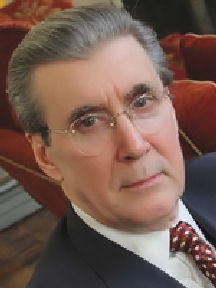On Jan. 1, 2016, the state’s minimum wage increased to $9.75 per hour and New York City’s hit $10.50.
In addition, the wage for tipped workers catapulted from $4.90 per hour to $7.50. The hourly wage will increase annually until 2021 when it reaches $15 per hour.
Although radical leftist groups — Occupy Wall Street, Working Families Party, Saul Alinsky-type community organizations — are celebrating the pay hikes as a victory for the “folks,” they fail to grasp the negative impact this wage policy will have on the job market for those on the bottom rung of the economic ladder.
Restaurateur Henry Meer was the first to rain on the parade of the radicals, New York’s Mayor de Blasio and City Council, when he announced that after 20 years in business he was closing their favorite downtown watering hole and eatery appropriately named “City Hall.”
The primary reason Meer cited for closing his restaurant: the 2016 increase in operating costs.
“Everybody,” he told the New York Times, “is going to be facing that in 2016. I mean there’s going to be a 50 percent increase in the tipped employees’ salaries. The cost of labor is a determining factor….”
Blaming the problem on government largesse and interference, Meer went on to say, “City Council people, I jab them…. They’ve never had to make a payroll.”
Meer confirmed what Conservatives have been preaching for decades: Significant raises in the minimum wage cost jobs.
Back in the 1960s, Economics Nobel prize winner, Milton Friedman, warned “the minimum wage law requires employers to discriminate against persons with low skills.”
“The high rate of unemployment among teenagers, and especially black teenagers,” Friedman declared, “is both a scandal and a serious source of social unrest. Yet it is largely a result of minimum wage laws.”
Time and again, Friedman pointed out that “after minimum wage rates were raised sharply, the unemployment rate shot up for both white and black teenagers.”
An American Action Forum study released in November 2015 focusing on how New York’s minimum wage increases would affect the very workers the policy is intended to help, proves that Friedman’s arguments are still valid.
While the report admits that a hike “would benefit some workers by increasing their earnings, it would also hurt hundreds of thousands of others whose earnings would sink because they could no longer find or keep a job.”
It estimates that during the period the minimum wage increases to $15 per hour, New York will lose between 200 thousand and 588 thousand jobs.
In other words, “potential benefits from revising the minimum wage would be greatly offset by the negative labor market consequences of the policy.”
The most affected region would be economically depressed upstate New York where the median wage is slightly above $15 an hour. Initial losses could be as high as 70 thousand.
This would further exacerbate the ever growing exodus of Upstaters to greener economic pastures in Texas and Florida.
Long Island would also take a hit. A study conducted late last year by the Long Island Association, projects that a $15 minimum wage could cost the Island 23,380 jobs.
In LIA’s judgment, “Every time the wage is increased, labor demand declines because the demand for labor is a decreasing function of the wage.”
LIA corroborates Milton Friedman’s prognostications and the American Action Forum findings that “raising the minimum wage transfers wage earnings from the low-wage workers who are unfortunate enough to become jobless to the low-wage workers who remain employed.”
As the French maxim goes, “Plus ça change, plus c’est la même chose.” (The more things change, the more they stay the same.)
Marlin’s latest book is Christian Persecutions in the Middle East: A 21st Century Tragedy.



